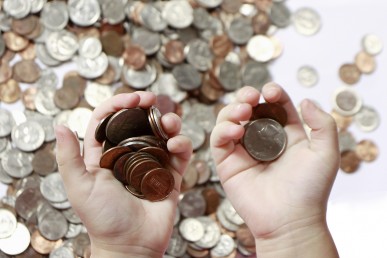Best gift for impoverished teens? Self-esteem
 Research at the University of Illinois at Chicago shows that impoverished youngsters are more prone to becoming materialistic.
Research at the University of Illinois at Chicago shows that impoverished youngsters are more prone to becoming materialistic.
Children ages 8 to 10 from economically disadvantaged backgrounds hold similar views regarding the importance of money and material wealth as their more affluent peers, according to researchers.
But once they reach age 11 to 13, teens living in poverty are more materialistic due to lower self-esteem than those from more affluent households. The difference persists at least until late adolescence, ages 16 to 17.
“Our research suggests that boosting self-esteem may be a promising way to curb materialism among teenagers,” says lead author Lan Nguyen Chaplin, UIC associate professor of marketing. “The question is, how do we boost self-esteem?”
The study, forthcoming in the Journal of Public Policy & Marketing, suggests that poverty-stricken youngsters can be empowered through activities that provide challenges, like sports, theater and dance.
“Their involvement in these activities will yield a more positive sense of self and less emphasis on material wealth as a basis for establishing their self-worth,” Chaplin said.
Although having the “right” brands, trendy clothes, and cool gadgets may provide teenagers a boost to their self-esteem, Chaplin said the boost is “temporary at best.”
“Feelings of competency and pride in accomplishments are the key to a healthy self-esteem, which is critical to curbing materialism among today’s youngsters,” she said.
So, shopping for teenagers this holiday season? Give something that matters. Enroll them in a community or school-based program to let them explore their talents in a variety of activities, suggests Chaplin.
Study co-authors are Ronald Hill of Villanova University and Deborah John of the University of Minnesota. The article is online at http://dx.doi.org/10.1509/jppm.13.050.
